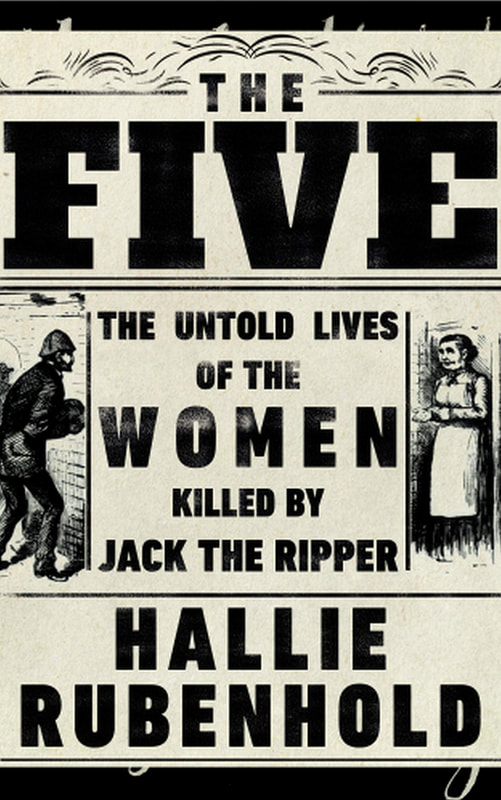The details of these women’s lives is often heartbreaking. They were as much victims of their society’s misogynist attitudes as Jack the Ripper, and were damned long before they fell to his blade. There were precious few options available to working class women in Victorian times: work was back-breaking and poorly paid, and motherhood wasn’t much better. Little access to contraception meant large families, and therefore more mouths to feed on your husband’s often meagre salary. Infant mortality was high, with diseases such as scarlet fever and tuberculosis spreading rapidly in cramped and unsanitary housing. If you turned to drink, or left your husband, society would heap shame on you, and your dire circumstances would be seen as a moral failing. While it’s fascinating to learn about Victorian life, it’s a horror to imagine it.
Wisely, Rubenhold avoids speculating on the identity of the killer, arguing that there’s been too much focus on him over the centuries. She points out that it’s disturbing he’s become a kind of celebrity, safely relegated to the realm of horror-movie monsters and Halloween costumes. Imagine if people opened Ted Bundy-themed attractions, or made cheap B-movies about Ed Gein. We’d rightly think that to be horribly insensitive, and yet Jack the Ripper gets a free pass.
There is much in Hallie Rubenhold’s book that speaks to our world today. Though the way society treats women has unquestioningly improved, the underlying attitudes still feel chillingly present. One only has to look at the Daily Mail and the Daily Telegraph – the exact same newspapers responsible for shaming the Ripper’s victims and sensationalising the killer – to see them plastered on the front pages (a shockingly recent example is the case of Steven Wright, who killed five women in Sussex in 2006). Rubenhold’s book is therefore not only a brilliant book about history, but a wake-up call for our complacent modern era, showing that the more things change, the more they sadly stay the same.
Review by Charlie Alcock

 RSS Feed
RSS Feed
